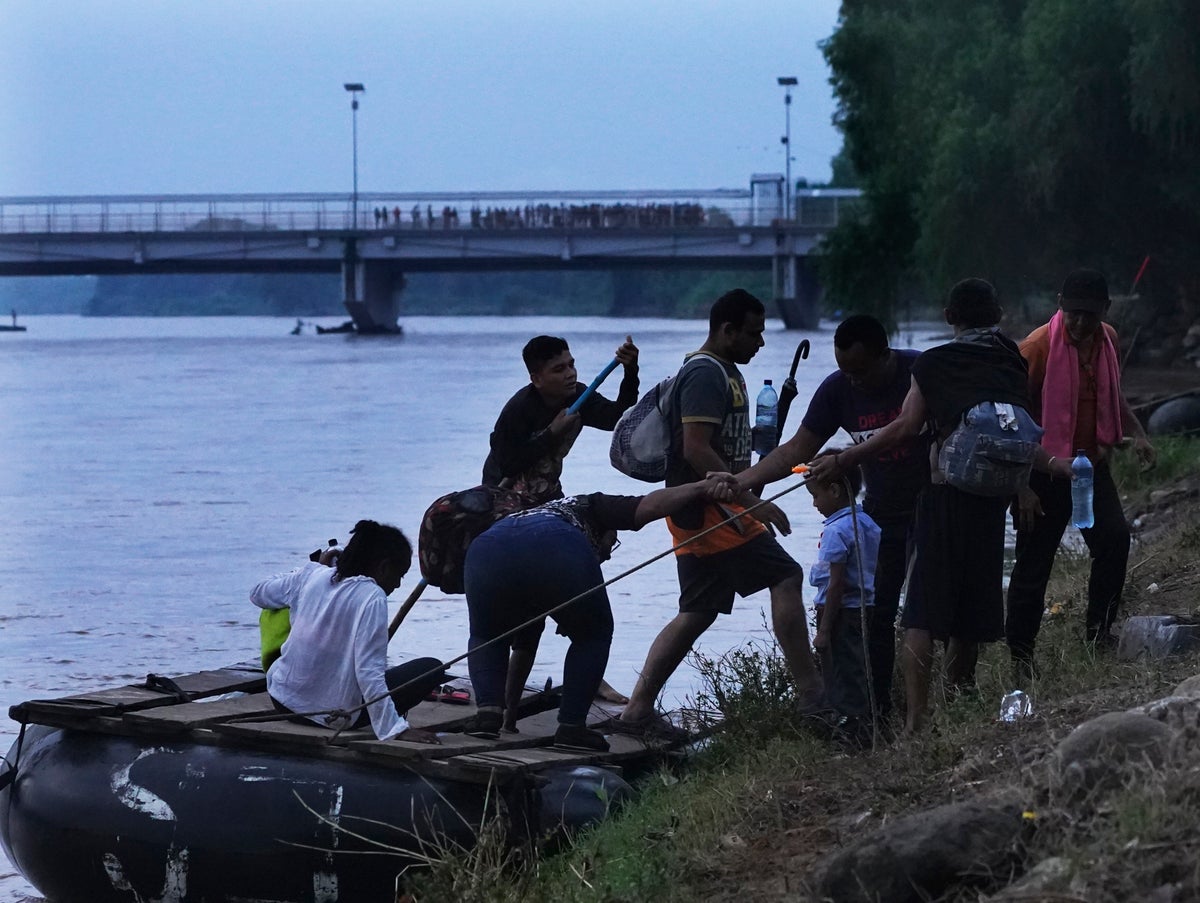
Mexico said Friday that border crossings by Venezuelans appear to be falling after new U.S. rules on expelling people from the South American nation who arrive by land.
The comments came as the Mexican government held joint exercises with Guatemala on controlling migration.
Officials from Mexico and Guatemala met on a bridge over the Suchiate River that divides the two countries to discuss information sharing and best practices. Even as the official event unfolded, migrants continued to cross the river below on inner-tube rafts, but most quickly turned themselves in to agents on the Mexican side.
Still, Arturo Rocha, an official of Mexico's Foreign Relations Department, estimated the number of Venezuelans crossing the U.S. border was down 90% and the number crossing the dangerous Darien Gap between Colombia and Panama was down 80%.
The Biden administration announced a new program last week that would accept up to 24,000 Venezuelan migrants at U.S. airports. Mexico, meanwhile, has agreed to take back Venezuelans who come to the U.S. illegally over land.
Rocha wrote in a newspaper column that about 7,500 applications had been received for the new program.
Up to now, Mexico had given Venezuelans and other migrants short-term transit passes that allowed them to reach a town further inside Mexico, San Pedro Tapanatepec, where they could wait for more formal visas.
Thousands of migrants had gathered in San Pedro Tapanatepec awaiting those papers, which many had previously used to continue on to the U.S. border.
But on Friday, Héctor Martínez Castuera, the director of coordination for Mexico's National Immigration Institute, said the visas would no longer be handed out in San Pedro Tapanatepec. Instead, Mexican authorities had set up a migrant shelter to handle all those waiting there.
“We have installed a shelter there, a big shelter to handle the migrants, but right now we are not giving out any immigration forms,” he said.
Martínez Castuera said migrants could try to get papers to remain in Mexico or return to Venezuela. He said Mexico is analyzing helping some return, as “many Venezuelans” want, but that the issue was complicated.
Many Venezuelans who were on route to the U.S. when the new rules were announced are now in Mexico, and are unsure of what to do next.

.png?w=600)





